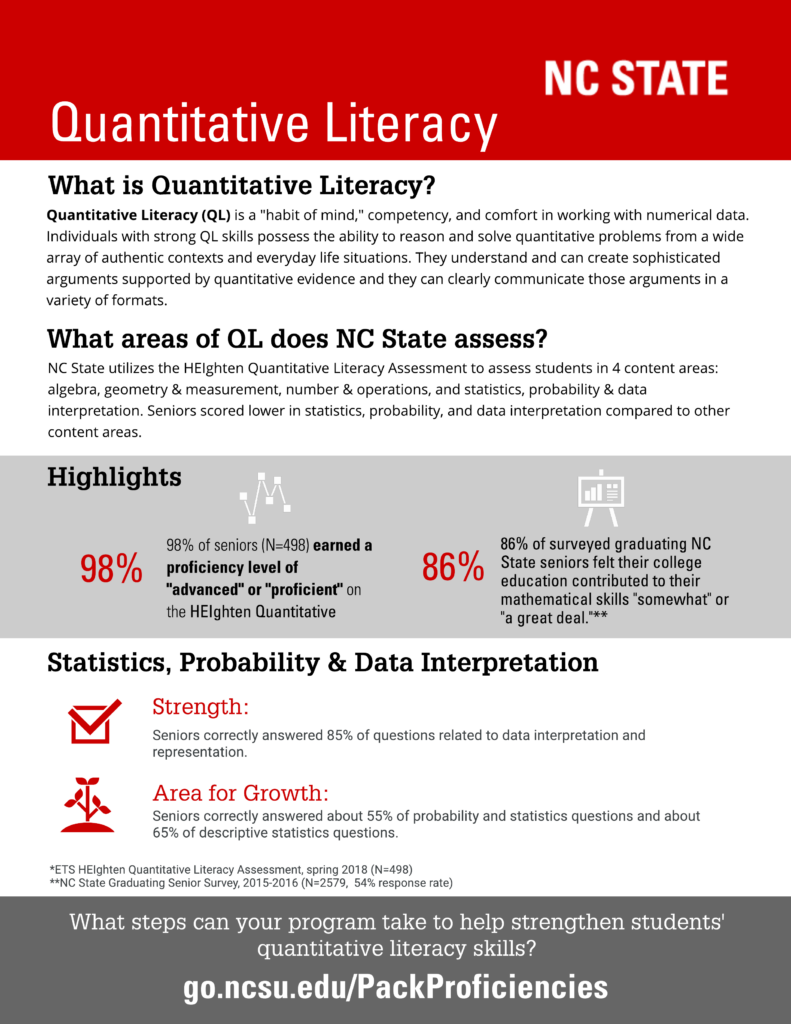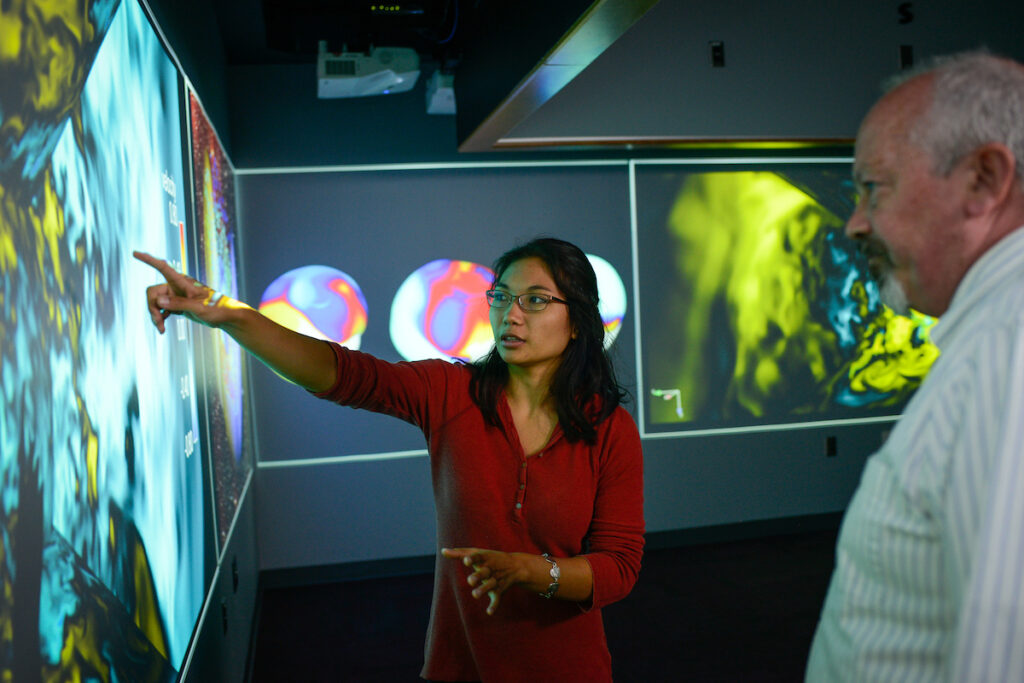Quantitative Literacy at NC State
Expectation
The Pack Proficiencies (General Education Competencies), including quantitative literacy, develop through multiple and sustained experiences across the General Education Program (GEP). The GEP provides a foundation for quantitative literacy and other Pack Proficiencies (General Education Competencies). It is expected that each degree program provide additional support to build upon that foundation.
Outcomes
- A generally educated NC State student will perform basic calculations using mathematical reasoning and problem solving in core areas including arithmetic, numbers and operations, algebra, geometry, and statistics. (AAC&U Calculation)
- A generally educated NC State student will convert relevant information into various quantitative forms (e.g., equations, graphs, diagrams, tables, maps, words) (AAC&U- Representation)
- A generally educated NC State student will explain information generated or presented in quantitative or mathematical forms (e.g., equations, expressions, graphs, diagrams, tables, and words) (AAC&U- Interpretation)
- A generally educated NC State student will make judgments and draw appropriate conclusions based on the quantitative, logical and statistical analysis of data, while recognizing the limits of this analysis (AAC&U- Application/Analysis)
- A generally educated NC State student will express quantitative, logical, and statistical evidence in support of the argument or purpose of the work (in terms of what evidence is used and how it is formatted, presented, and contextualized). (AAC&U-Communication)
Assessment of Quantitative Literacy
Current Assessment Activities
During the 2024-2025 academic year, the DASA Assessment office will partner with the Office of Assessment and Accreditation to facilitate assessment of quantitative literacy. In fall 2024, faculty in the Health and Exercise Studies department will administer the assessment to students in their first-year only sections. Seniors will be assessed in spring 2025; recruitment for faculty partners will begin in November.
Additional Links
- Quantitative Literacy Rubric
- Authentic Assessment Process for Quantitative Literacy
- Quantitative Literacy Champion
- More Information on General Education Competency Assessment
Findings

